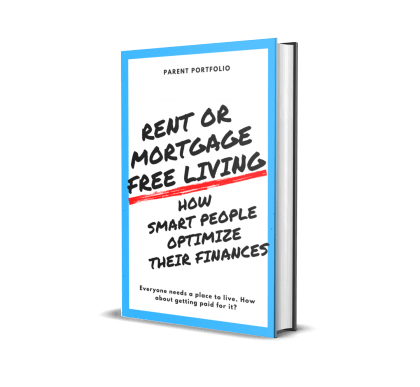How to Make Money in Real Estate

Have you wondered, “How to make money in real estate?” You may be overwhelmed by the many different ways and investment strategies if you’ve thought about getting into real estate investing.
You also may think you need to be in it for the long haul to make a profit or even need a real estate license: myth!
Let’s look at your options for real estate investing in both the short and long term to choose the right investment strategy.
How Money is Generated in Real Estate
We will dive into real estate investing strategies later on. But for now, let’s focus on the two routes to make money through real estate investing: appreciation and income.
Appreciation
As a general rule, real estate is always appreciating. That means that a property will typically always increase in value over time. Therefore, the homebuyer sees a higher return on investment if they refinance or sell the property.
Inflation plays a significant role here. For example, in the Spring of 2022, we’re seeing national inflation at about 8.5%, which means that inflation alone can contribute to 8.5 percent of the housing price increases.
Real Estate Income
Another way real estate makes money is through income, which usually is rent paid by tenants to a landlord but can also come in various forms. Depending on the number of real estate properties an investor owns, this method can be a substantial passive income stream.
Residential Real Estate Property Income
If you’re looking to collect a monthly paycheck from owning real estate, you can rent to tenants. These tenants can be long-term or short-term, but you can count on them to pay a fixed amount. Investors use this income for maintenance, property taxes, and property management, but the rest goes to you.
As time goes on, you may need to adjust the rent price to generate rental income to keep up with demand and inflation.
Commercial Real Estate Property Income
Similarly, you can collect rent on a commercial property. These properties can be retail buildings, offices, warehouses, or industrial buildings.
Commercial properties typically have a high yield of making money, and again, you can adjust rent prices according to demand and inflation.
Raw land
“Buy land, they’re not making it anymore.” – Mark Twain.
Land is an avenue to profit with an inherent value – there’s only so much of it!
You can use raw land for agricultural development, storage, business developments, livestock, advertising space, etc. Plus, companies may pay you for access to the property or build specific structures such as pipelines.
Fastest Ways to Make Money in Real Estate
Real estate investing isn’t just for those looking to be in it for the long haul. A new real estate investor looking to get their feet wet and test out different strategies has several options that don’t lock them in for the long term.
Here are some short-term real estate investment options that can be very profitable.
House Flipping
If you’ve got handyman skills and enjoy a hands-on project, flipping houses may be for you.
Of course, the time required for these real estate projects will depend on the home’s condition, but generally speaking, you can flip and sell pretty quickly. Then, it’s up to you to decide if you’ll use some of the profits for your next investment home or collect the income.
Pros:
- High rate of return
- Lower upfront cost
- Flexibility to rent or sell
Cons:
- Higher risk
- More work involved upfront
- Costly to hire contractors for repairs (if you can’t do the work yourself)
Short Term Rentals
Many people don’t like maintaining a long-term rental – there are certain risks associated with letting people stay in your home without seeing how the condition is day-to-day.
Short-term rental properties are a great way to make money for those folks. These are your Airbnb and vacation rentals.
The advantage of investing in a short-term rental is that you get frequent access to the property and greater control over selecting your tenants. Plus, there’s a high-profit margin to make positive cash flow quickly.
Pros:
- High ROI
- Visiting the property between guests makes it easier to keep up with property maintenance
- Tax deductions
Cons:
- The expense of hiring help (cleaners, property managers, etc.)
- Potential fluctuations in demand during on and off seasons
- The risk of renting to bad guests
Real Estate Investment Groups (REIGs)
REIGs are typically the most hands-off way to start real estate investing. These investment groups buy multi-family homes, condos, or apartment blocks and allow investors (you) to join in.
You’ll have to split the profits, but it is worth the trade-off of not managing the investment itself.
Real Estate Investment Trusts (REITs)
A REIT is a company that owns, operates, and purchases various income-generating properties. These types of properties include, but are not limited to, apartment buildings, office spaces, hotels, medical facilities, and the like.
Publicly traded REITs pool together the money of numerous investors to operate and acquire properties. Investors receive a share of the income produced by properties owned by the REIT.
However, a REIT is not the same as a real estate crowdfunding. Although syndication pools together money of multiple investors, the investment focuses on only one investment property
Long Term Real Estate Investment Strategies
Buy and Hold
This strategy is a long-term passive investing strategy to sell for more than you paid. Then, when you own the property, you’ll make a profit through rental income or other developments (see section above on raw land.)
Once you’ve determined the right time to sell or refinance, appreciation and inflation will have made a way to collect a profit.
The BRRRR Method
An alternative real estate strategy is the BRRRR method. This strategy combines buy and hold with house flipping. This method involves four steps: Buy, Rehab, Rent, Refinance, and Repeat.
You’ll start by buying a distressed home, making all the necessary repairs, increasing property value, collecting rental real estate income, cash-out refinancing to collect a profit on the home’s equity, and purchasing your next investment property.
Pros:
- Source of long-term passive income
- Tax benefits
- Build a diversified portfolio of rental properties
Cons:
- Loan terms may be less favorable
- Closing costs for purchase and refinance
Long-term Rentals
Residential property rentals can be both a short-term and long-term investment strategy. But to see the highest profits, you’ll want to stick it out for at least five years.
You’ll collect a fixed monthly payment with a long-term rental property without involving day-to-day matters. The most important thing about long-term rentals is choosing safe and responsible tenants – this sometimes proves to be a challenge.
The payout on this risk counts on a stable monthly paycheck as long as you’re willing to rent it out.
Some people are hesitant to become a landlord because they don’t want to deal with tenants. Fortunately, there are numerous property management companies investors can choose from.
Pros:
- Steady cash flow
- Tax deductions
- Appreciation
- Relatively hands-off once you find the right tenants
Cons:
- Interviewing and managing tenants
- Lower ROI than short-term rentals
- Upfront cost
How to Choose an Investment Property
Choose the Best Investment Strategy For You
Now that you’ve seen the pros and cons of short-term and long-term real estate investment strategies, you can begin thinking about what makes the most sense.
Do you prefer to make a quick profit and exit the real estate market? Or do you plan to stick around and collect a passive paycheck for the long run?
The great thing about real estate is that you can customize your strategy to fit your needs. What works for some people may not work for others.
Location
Once you’ve decided on the best investment route, it’s time to look at the right location for your real estate asset.
If you’re planning to rent out your property, think about what your prospective tenants’ are looking for. For example, do they want to be close to restaurants, nightlife, and public transportation?
As a general rule, you’ll want to think about neighborhoods in your area. Seek out a local real estate agent familiar with the housing market. Also, although they are a licensed real estate agent, make sure they have experience doing real estate transactions for investors.
ROI
In choosing a successful real estate property, an essential thing is ensuring a sufficient ROI. To do so, grab your calculator and look at the numbers.
For example, you plan to rent your property through Airbnb as your real estate business. Use this formula to calculate your rental yield.
If you charge $150/night and expect an 80% occupancy rate, you’ll make around $43,800 before expenses. $150 x .80 x 365 = $43,800
Next, plug this number into a rental yield formula. For this example, let’s assume you bought the property for $300,000.
Annual rent ÷ The value of the property x 100 = Gross rental yield
$43,800 / $300,000 = 0.146 x 100 = 14.6% Gross rental yield
An excellent gross rental yield will typically start at around 3%.






